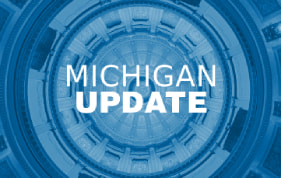On June 3, 2022, the Centers for Medicare & Medicaid Services (CMS) notified states that they will have an additional year, until March 31, 2025, to use funding from the American Rescue Plan Act (ARPA) to strengthen their Medicaid home and community-based services (HCBS). CMS’ update extends important flexibility to ensure state Medicaid programs and stakeholders, including beneficiaries, realize maximum benefit from federal investments in expanding and enhancing HCBS services.
For over a decade, the Medicaid program has been leading transformations of state long-term services and supports systems (LTSS), including physical and behavioral health services and health-related social needs. These efforts primarily focus on broadening eligibility, making more significant Medicaid investments in HCBS, and improving beneficiaries’ access to HCBS programs. The COVID-19 pandemic heightened attention to beneficiaries’ disparate experiences with accessing HCBS and exacerbated pre-COVID challenges faced by the LTSS workforce.
Section 9817 of ARPA provides an increase for Medicaid-funded HCBS by offering states the option to claim an additional 10 percentage point increase in federal match (FMAP) for the one-year period from April 1, 2021, to March 31, 2022. To receive the higher federal funding, states cannot make changes to the amount, duration, and scope of covered HCBS; they cannot reduce HCBS provider payment rates; and they cannot make eligibility standards for HCBS programs or services stricter until all additional funds are expended. CMS also requires states to submit a spending plan and narrative that describes planned enhancement activities.
Notably, a state must reinvest the higher federal funding in Medicaid HCBS while maintaining the spending levels they had in place on April 1, 2021. According to CMS’s new guidance, states can now use the funds until March 31, 2025, rather than March 31, 2024, under the previous guidance.
Actions Stakeholders Can Take to Maximize the Extra Time
The updated spending deadline is grounded in a better understanding of the level of effort and time necessary for states to identify, build consensus, and implement specific actions to include in a state’s HCBS spending plan. HMA works with states, providers, health plans, and other stakeholders, including consumers, who will benefit from the additional time to make investments. Our work includes supporting states as they align the multitude of needs and priorities with the available funds and supporting robust stakeholder engagement efforts to inform the plans.
The following are some of the most impactful “next steps” that states and stakeholders can pursue to best utilize the additional time to reinvest in Medicaid HCBS programs:
- States can communicate with stakeholders, including health plans, providers, community organizations, consumers, and others, to share how the extension impacts the state’s spending plan.
- States and stakeholders can renew their engagement to consider potential changes to the spending plan activities, timelines, or both. Stakeholders may have additional opportunities to offer input to refine further and prioritize the design and delivery of augmented or new services, systems, and related initiatives.
- State Medicaid, aging, and various other programs and providers have more time to strengthen their collaboration to meet the needs of individuals of all ages who are living with disabilities.
- States, vendors, health plans, and providers can evaluate through evidence, analysis and stakeholder feedback, if the projects they are pursuing are effective and/or should be modified. For example, it may be beneficial to provide more flexibility in the deadlines for case management and referral systems builds and implementation of the training for workers on these new systems.
- States and their stakeholder partners can refocus on workforce issues, including examining eligible provider types and scopes, evaluating provider network issues, considering the role of virtual services, conducting provider and managed care rate setting studies, and other changes to support the HCBS direct care workforce.
- States can develop reasonable timeframes to strengthen existing efforts or pursue new initiatives to develop and implement managed long-term services and supports for certain groups of Medicaid beneficiaries.
Looking ahead, states and all stakeholders need to assess the impact of these investments. ARPA funds are a significant investment in strengthening Medicaid LTSS programs, but these transformative efforts require sustained commitment. There is continued uncertainty around additional federal Medicaid funding over the long term that are necessary to address ongoing needs and make further progress towards high-quality, accessible HCBS services. Understanding the extent to which the funds are achieving the desired structural transformations and the impact on Medicaid beneficiaries can guide future areas of federal and state focus and investments.
For more information, please contact our experts below.
Related posts:
- Federal Funding for Home and Community-based Services (HCBS): Enacted and Proposed Investments: https://www.healthmanagement.com/blog/federal-funding-for-home-and-community-based-services-hcbs-enacted-and-proposed-investments/
- HMA Prepares Issue Briefs Exploring MLTSS Impacts on State Medicaid Programs: https://www.healthmanagement.com/blog/hma-prepares-issue-briefs-exploring-mltss-impacts-on-state-medicaid-programs/




